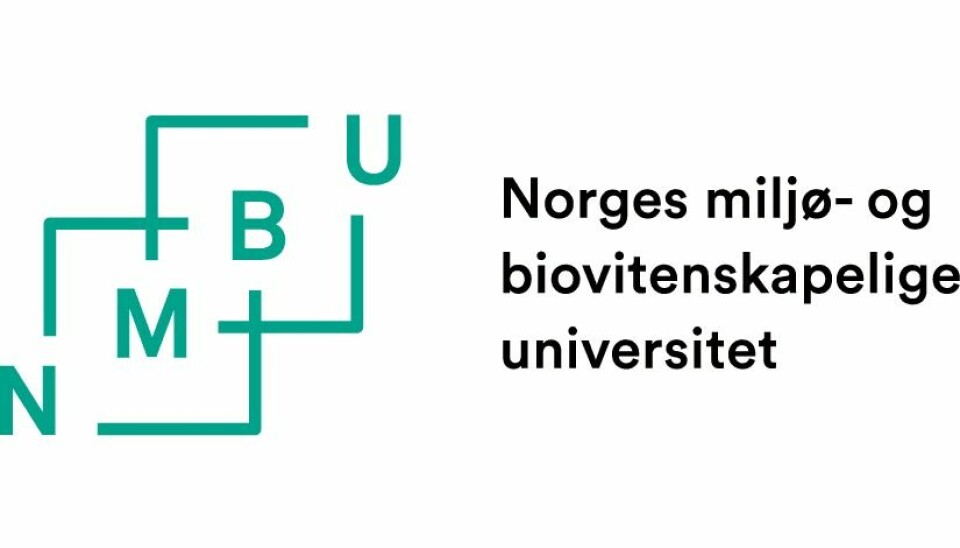Ledig stilling ved NMBU
Postdoctoral fellow / researcher position exploring Phylogenomics of the salmon jumping sex locus
Deadline: 05.05.2019
About the position
The Department of Animal- and Aquacultural Sciences (IHA), Faculty of Biosciences (BIOVIT), at the Norwegian University of Life Sciences (NMBU) is inviting applications for a 3-year postdoctoral fellow / researcher position exploring phylogenomics of the jumping sex determining locus of salmonid fishes.

The successful candidate will work within the Transpose research project, funded by the FRIMEDBIO 2018 program in the Research Council of Norway.
The successful candidate will join CIGENE, a multidisciplinary genome biology research group possessing expertise in genetics, evolutionary and comparative genomics, bioinformatics and systems biology.
Located within the Department of Animal- and Aquacultural Sciences, CIGENE includes 2 full-time professors, 2 associate professors, 11 researchers, 8 PhD students and 9 research technicians.
CIGENE has a strong aqua- and agri- research profile, with key strengths in the application of ‘omics’ data to understand the genetic architecture of complex traits. The group wishes to use functional genomics technologies, including gene editing, to better understand the biology underlying specific genotype-phenotype associations. CIGENE has excellent wet and dry lab facilities for automated high-throughput omics, and bioinformatics.
Main tasks
The TRANSPOSE project seeks to explore the evolutionary consequences of transposable element activity, from large chromosome-scale structural rearrangements, through regulatory rewiring, to the evolutionary dynamics of jumping sex determiners and the contribution of micro-rearrangements to local adaptation.
This position will characterize the recent and past transposition activity of the salmonid jumping sex determining locus using a combination of phylogenomics and long read genome sequences to determine the evolutionary forces contributing to sex chromosome turnover.
This work will impact our understanding of sex chromosome evolution, specifically the role of mutation load and sexual antagonism as drivers of sex chromosome evolution.
Qualifications and skills
Required academic qualifications:
- PhD-degree in evolutionary genomics, population genetics or similar
- Interest in evolutionary theory and/or evolutionary genomics
- Experience with analyzing / interpreting ‘omics’ data
- Familiarity with at least one programming language (R, python, perl, etc.)
- Excellent communication skills both to the scientific community and to a broader audience
Desired academic qualifications:
- Experience with phylogenomic methods, especially Beast, StarBeast or similar
- Experience working with transposable elements
- Experience working with sex chromosome evolution
Required personal skills:
- Highly motivated and enthusiastic about the field of evolutionary genomics
- Ability for independent work displaying initiative and creative thought
- Enthusiastic, highly structured and organized, able to multi-task
- Good collaborative and interpersonal skills
- Proficiency in English, both written and spoken. Proficiency in Norwegian is not required but is advantageous.
Remuneration and information
The position is placed in government pay scale position code 1352 Postdoctoral Fellow, wage framework 24, salary grade 59-77 (NOK 515 200 - 731 400), depending on qualifications. Seniority Promotion in position.
For further information, please contact:
- Project leader Dr. Nicola Barson by email: nicola.barson@nmbu.no, or phone +47 92271403; or
- Group leader prof. Sigbjørn Lien by email:sigbjorn.lien@nmbu.no, or phone +47 91353715
Information for PhD applicants and general information to applicants
Application
To apply online for this vacancy, please click on the 'Apply for this job' button above. This will route you to the University's Web Recruitment System, where you will need to register an account (if you have not already) and log in before completing the online application form.
Application deadline: May 5th 2019
Applicants invited for an interview will be asked to present verified copies of diplomas and certificates.
Applications should include (electronically) a letter of intent, curriculum vitae, full publication list, copies of degree certificates and transcripts of academic records (all certified), and a list of two persons who may act as references (with phone numbers and e-mail addresses).
Up to ten publications selected by the applicant as most relevant must be attached to the application. If it is difficult to identify the contribution of the applicant in multiple-author publications, a short explanation about the applicant’s part of the work is suggested.






